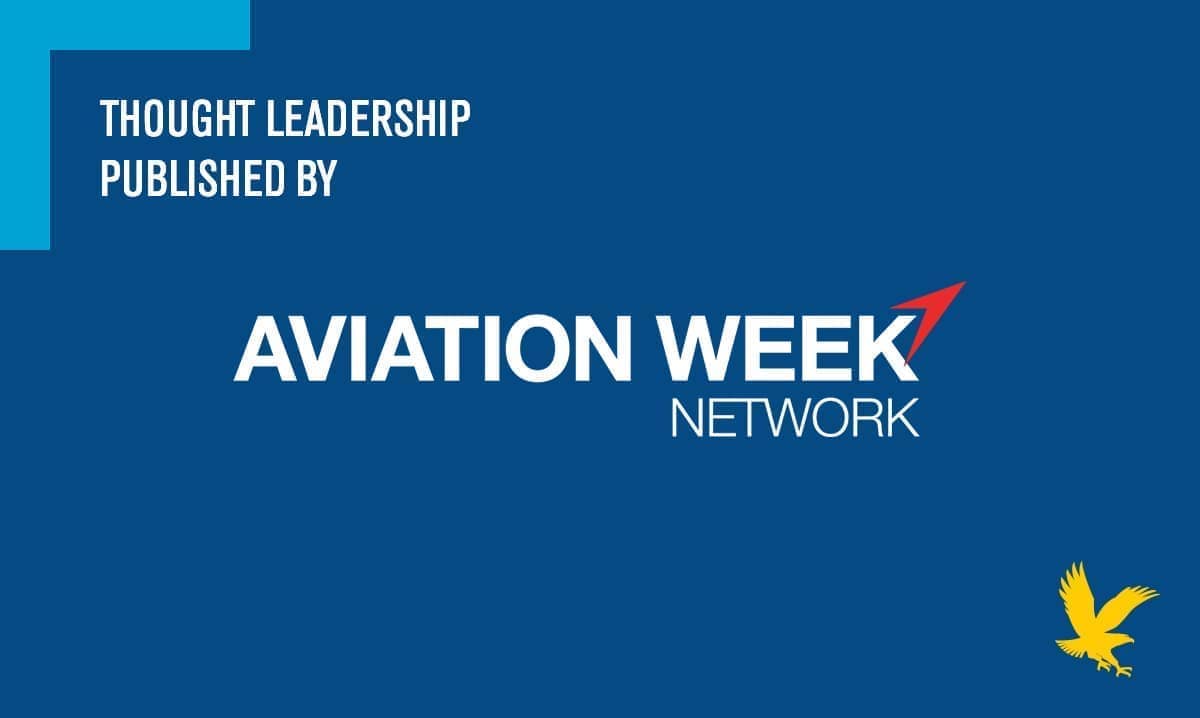Aviation Week Op-Ed: It’s Time to Address Pilots’ Mental Health, Embry-Riddle President Writes

In his latest “Aviation Week” essay, Embry-Riddle Aeronautical University President P. Barry Butler, Ph.D., emphasizes the need to “place mental health issues front and center” to improve aviation safety. The essay, published online on Jan. 24 and slated for the Jan. 30 print edition of “AviationWeek,” is Dr. Butler’s 11th opinion piece in the publication, on behalf of Embry-Riddle. Through the Hunt Library, the Eagle community can log onto ERNIE to freely access the essay. Alternatively, subscribers to “Aviation Week” can log on here. The article is also provided below.
Opinion: Let’s Debunk The `Right Stuff’ Myth in Aviation Education
By P. Barry Butler
Until recently, those of us in aviation education did not talk much about the problem of pilots suffering from mental health issues.
To advance aviation safety and save lives, we must be brave enough to place those issues under the brightest of lights. We must debunk the notion that having the “right stuff” means never asking for help. In fact, the opposite is true: The best pilots are wise decision-makers who know their limits and make appropriate course corrections, as needed. Making a decision to deviate course in order to avoid dangerous weather is considered good pilot decision-making. So should a pilot’s decision to seek help for mental health challenges.
Amid the pandemic, as a global health crisis created additional stress for students everywhere, Embry-Riddle has accelerated its ongoing efforts to place mental health issues front and center. This applies to all students, but especially to those pursuing professional aviation careers. Repeatedly, we have encouraged student pilots to seek help if they feel they need it. In the vast majority of cases, reaching out for emotional support will not result in flight students being deemed unfit to fly.
All of us at some point will experience situational challenges related to relationships, stress or financial burdens. Pilots and flight students are not disciplined for seeking help with such normal human experiences. Sadly, stigma persists, and fear too often prevents aviation students from seeking emotional support. Students may fear they will never get their FAA Medical Certificate back if they need treatment for depression, although the FAA has reported that the vast majority of deferred medical applications are approved.
Daylighting mental health issues is critically important to aviation safety. Pilots work under inherently stressful conditions. With every flight, lives are on the line. Major events such as the 9/11 terrorist attacks heighten stress levels. More commonly, long hours on the flight deck, away from loved ones, can cause sleep loss, physical ailments, feelings of isolation and family discord.
How many pilots experience mental health issues? Research findings vary, but Joan Cahill, an independent researcher in the school of psychology at Trinity College Dublin, and colleagues report that in a 2021 survey of commercial pilots, for instance, 40% of 821 respondents met the threshold for mild clinical depression. A total of 6% met the threshold for either moderately severe or severe depression.
We have been encouraged by increasing discussions about mental health in aviation education. Aviation Mental Health Summits convened by the University of North Dakota have been attended by Embry-Riddle and other schools as well as the FAA, U.S. Air Force, Aviation Medical Advisory Service, airline representatives and the Air Line Pilots Association, International (ALPA). Presenters voiced concerns, shared best practices and described success stories.
Embry-Riddle and other institutions are developing peer-counseling programs for pilots, modeled after initiatives offered by major airlines and ALPA. We also are speaking directly to our student body while revisiting our advising policies and curriculum. We continue to work with our Aviation Mental Health Task Force and a Dean’s Human Factors Council. An Aviation Stress Management course, put in place several years ago, helps avert crises by providing students with the tools they need to navigate personal challenges. And instructor pilots have been empowered to direct students to emotional-support resources.
We commend the FAA and everyone in aviation education who is raising awareness of mental health issues. Going forward, continuing insights based on objective psychology and human factors research will surely inform ongoing refinements of the FAA’s regulatory framework.
In Tom Wolfe’s book “The Right Stuff,” aviators and astronauts often viewed medical professionals with suspicion — out of concern that they could end their flying careers. Today, we are educating the next generation of professional aviators to trust the support of trained mental health professionals, in the same way that passengers trust the aviation skills of trained professionals on the flight deck.
P. Barry Butler is president of Embry-Riddle Aeronautical University.
